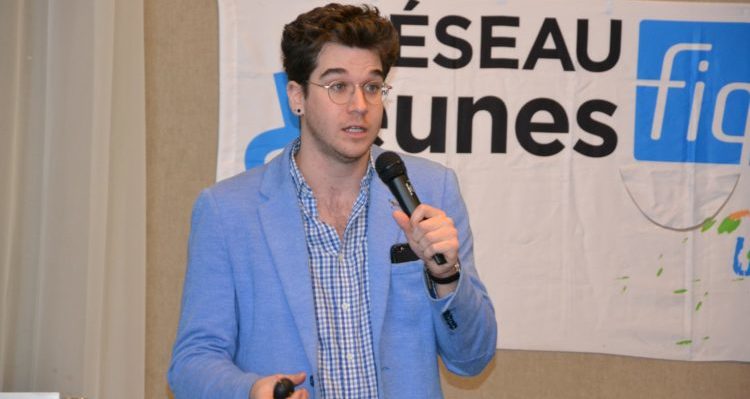
Democracy: a privilege to foster and protect
Democracy is the government of the people, by the people and for the people. It’s the basic principle of Quebec and Canadian political systems which allows voters to appoint a few men and women to govern and represent the population and make the best possible decisions for the common good.
However, in the day-to-day unappealing aspects often come to light. That is why the many promises broken by those in power and the inertia of successive governments in dealing with mounting inequality and injustice have generated cynicism, putting democracy in jeopardy. The workshop “What is democracy exactly?,” proposed by Caroline Simard, a union consultant at the FIQ, set the stage and clarified the concept of democracy, which would colour the two days of the Youth Network.
The rise of populism: youth’s counterbalance
The rise of populist political figures, primarily in the United States, Brazil, Italy and even Canada with the Ontarian Doug Ford government, is creating greater division among the people. These leaders manipulate the bitterness of certain segments of the population in order to gain power through democratic means. Citizens’ anger is sometimes aroused by social, racial or historical causes and almost always has economic ramifications. One reason in particular why modern economies are so unequal is because of the capitalist model which exploits workers and the environment in order to profit a handful of elite. However, the review by Jean-François Daoust, from the Université de Montréal, helped to illustrate how the young generation counter balances this trend and to what extent youth-driven initiatives influence decision-makers and generate change.
Tax havens: an economic and democratic scourge
The union reps at the Youth Network learned more about tax havens at a conference given by Claude Vaillancourt, President of ATTAC-Québec. Mr. Vaillancourt underscored that a significant amount of large companies use various ploys to divert profits to countries that impose little to no tax. The worst part of it is that companies that are making astronomical profits should pay their fair share of tax in the countries where the money is made. In 2010 in Canada alone, an estimated 9 to 48 billion dollars was lost to this type of fraud. This money should have gone to finance public services, health care and education in particular, and toward social programs to improve the living conditions of vulnerable segments of the population.
As Mr. Vaillancourt explained, there are ways to fight against the scourge of tax havens. A few governments have started initiatives, but progress remains very slow. And yet a better distribution of wealth is essential to preventing the democratic balance from shifting in favour of the wealthy and leaving the rest of the population behind. The young participants clearly found Mr. Vaillancourt’s presentation captivating.